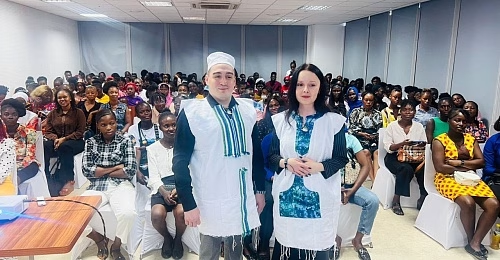How Kenyan Girls Are Trafficked to Russia to Assemble War Drones
A disturbing new report has revealed the trafficking of Kenyan girls to Russia under the guise of lucrative job opportunities, only for them to end up assembling military drones in harsh and deceptive conditions.
The investigation by the Global Initiative Against Transnational Organised Crime (GI-TOC) uncovers a dark web of online recruiters, paid influencers, and local intermediaries who lured over 400 young Kenyan women with false promises of vocational training and high-paying jobs. Tragically, most of these girls ended up trapped in Russia’s Alabuga Special Economic Zone (SEZ), an industrial hub central to the country’s war machine.
Social Media: The Gateway to Exploitation
Recruitment for the programme was aggressively pushed through platforms such as TikTok, Instagram, Telegram, and X (formerly Twitter), with influencers glamorising the opportunity. Applicants were told they would receive scholarships, learn Russian, and gain skills at Alabuga Polytech.
However, the truth was grim. Upon arrival, many discovered they were expected to work long hours under constant surveillance in factories manufacturing attack and reconnaissance drones used in the Russia–Ukraine war.
Fraudulent Recruitment Practices
To qualify, applicants needed a high school education, a passport, and basic Russian vocabulary. The recruitment process even included a so-called business aptitude simulation. However, the real objective—supporting drone production—was never revealed until after the women arrived.
Some recruits were placed in support roles like catering or cleaning, but the majority ended up on the drone assembly lines. Working conditions were reported as repressive and exploitative, with whistle-blowers describing toxic work environments, limited movement, exposure to harmful substances, and cases of racism and harassment.
Widening the Recruitment Net
Though initially focused on African countries, including Kenya, Uganda, Tanzania, and Burkina Faso, the Alabuga Start programme has since expanded to 84 countries. Recruitment tactics included school visits and partnerships with youth organisations. In Tanzania, the BDADI Foundation held recruitment events in coordination with Alabuga Start, while similar events occurred at universities in West Africa.
GI-TOC estimates that up to 800 women have joined the programme since 2022, most aged between 18 and 22—targeted due to perceived traits like patience and “female accuracy” in manual work.
Not Just Victims—War Collateral
Disturbingly, drone production facilities where these women work have become targets in the Ukraine war. Ukrainian drones have struck the SEZ, injuring workers—placing these young recruits in direct danger without their knowledge or consent.
The report argues that Alabuga Start meets several criteria for human trafficking: deceptive recruitment, coercion, repressive labour conditions, and clear exploitation.
Kenyan Authorities Respond
In Kenya, the Directorate of Criminal Investigations (DCI) has launched inquiries into how the women acquired passports and the role of local intermediaries. Public backlash and scrutiny have prompted some recruiters to cut ties with the programme.
Despite being marketed as a private enterprise, Alabuga SEZ is deeply intertwined with the Russian state. The Russian Ministry of Defence finances the drone production, and the SEZ is owned by a government department in the Republic of Tatarstan.
As the Russia–Ukraine war rages on, the exploitation of Kenyan girls in military drone factories serves as a chilling reminder of the global reach of human trafficking and the need for urgent international and local intervention.
In other news:Odoyo Owidi Fired as CSs Make Radical Shake-Up in State Agencies
How Kenyan Girls Are Trafficked to Russia to Assemble War Drones

